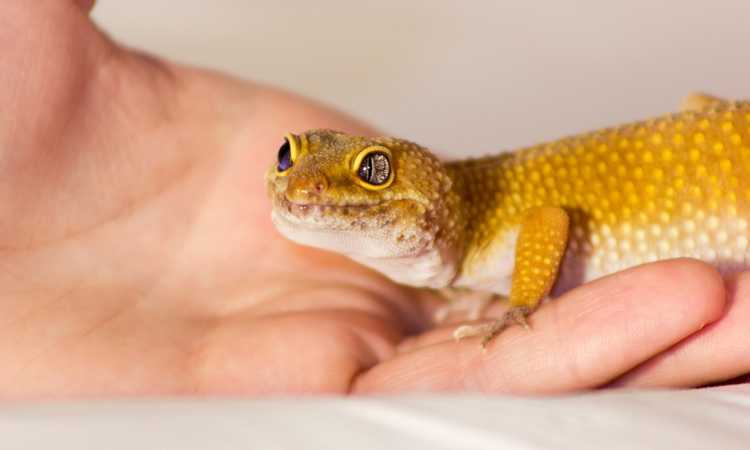If you own a gecko or are thinking about getting one, you need to know how to properly take care of them from a veterinary standpoint. Geckos are delicate creatures and require specialized care. This guide will teach you everything you need to know about proper gecko veterinary care so that you can keep your pet healthy and happy.
Why Proper Gecko Care Is Important
If you’re thinking of getting a pet gecko, it’s important to do your research first. These small lizards can make great pets, but they have specific care requirements that must be met in order to keep them healthy and happy. Here are just a few reasons why proper gecko care is so important.
Geckos are susceptible to dehydration, so it’s important to provide them with a shallow dish of clean water at all times. They also need a humid environment in order to shed their skin properly. A good way to achieve this is by misting their enclosure with water once or twice a day.
Geckos are also very sensitive to temperature changes and need an environment that remains relatively warm and consistent.

The Best Way to Find a Good Reptile Vet
There are a few things to keep in mind when looking for a good reptile vet. First, check if the vet is certified by the Association of Reptilian and Amphibian Veterinarians (ARAV). This certification indicates that the vet has taken extra steps to learn about reptiles and their care.
Second, ask around at your local pet store or reptile rescue for recommendations. Once you have a few names, call each one and ask about their experience with reptiles, what services they offer, and if they have any specialties. Finally, trust your gut! If you feel like a vet is not knowledgeable or doesn’t seem to care about your reptile, find someone else.
What To Expect During a Gecko Vet Visit
If you’ve never been to the reptile vet before, here’s what you can expect during a gecko vet visit. Your vet will ask about your gecko’s diet, housing, and any recent changes in behavior. They will then do a physical examination of your gecko, looking for signs of illness or injury.
Blood and fecal tests may be done to check for parasites or other health problems. X-rays or ultrasounds may also be performed to get a better look at your gecko’s internal organs. Finally, your vet will discuss any treatment options with you and answer any questions you may have.

How To Properly Care for a Gecko At Home
As lizards go, geckos are fairly low-maintenance pets. They are small, quiet and can be easily cared for with a few simple supplies. If you’re thinking of adding a gecko to your family, here are a few things you need to know about how to properly care for them.
To start, you will need to purchase a terrarium or enclosure for your gecko. The size of the enclosure will depend on the type of gecko you have. A 10 or 20 gallon tank is sufficient for most species of gecko. You will also need to purchase a lid for the tank as well as some rocks or other decorations for your pet to climb on.
Next, you will need to set up the enclosure with the appropriate substrate. This can be anything from sand to reptile carpeting.
If you own a gecko, it is important to take proper care of it in order to keep it healthy and happy. This includes taking it to the vet for regular checkups and vaccinations. In this article, we will explore why proper gecko veterinary care is so important and provide some tips on how to find a good vet.
Read This: What Should I Feed My Leopard Gecko
The Most Common Health Problems In Geckos
Geckos are a popular pet for many people, but they can also come with some common health problems. Some of the most common health problems in geckos include:
1. Salmonella: This is a bacterial infection that can be passed from geckos to humans. Symptoms include diarrhea, vomiting, and fever.
2. Metabolic Bone Disease: This is a condition that occurs when a gecko doesn’t get enough calcium in their diet. Symptoms include soft bones, deformities, and muscle weakness.
3. Respiratory infections: These are common in geckos because they have such small airways. Symptoms include wheezing, sneezing, and difficulty breathing.
When To Seek Emergency Vet Care For Your Gecko
As a general rule of thumb, you should take your gecko to the vet if they are not behaving normally. If your gecko is lethargic, has lost their appetite, or appears to be in pain, these are all signs that something could be wrong and they should be seen by a professional.
There are some more specific circumstances in which you should seek emergency vet care for your gecko. If your gecko has been injured, is bleeding, or has any sort of wound on their body, this qualifies as an emergency and you should take them to the vet immediately. Additionally, if your gecko has diarrhea or vomiting, these could also be signs of a serious problem and warrant a trip to the emergency vet.
The Importance of Proper Gecko Veterinary Care
In conclusion, proper gecko veterinary care is essential to keeping your pet healthy and happy. By following the tips in this guide, you can ensure that your gecko receives the best possible care. If you have any further questions, be sure to consult with a qualified veterinarian.
Related posts:

Hi – I’m Erika, the lead gecko enthusiast here at Geckopedia! I write articles about pet geckos, including what to feed your leopard gecko and how to help your pet gecko live a long, happy life! I graduated with advanced degrees from UC-Berkeley, the University of Southern California (USC) and Indiana University-Bloomington, where I studied Biology and Animal Science. I use my experience to help others learn about gecko care, and I am an advocate for all topics gecko related!
